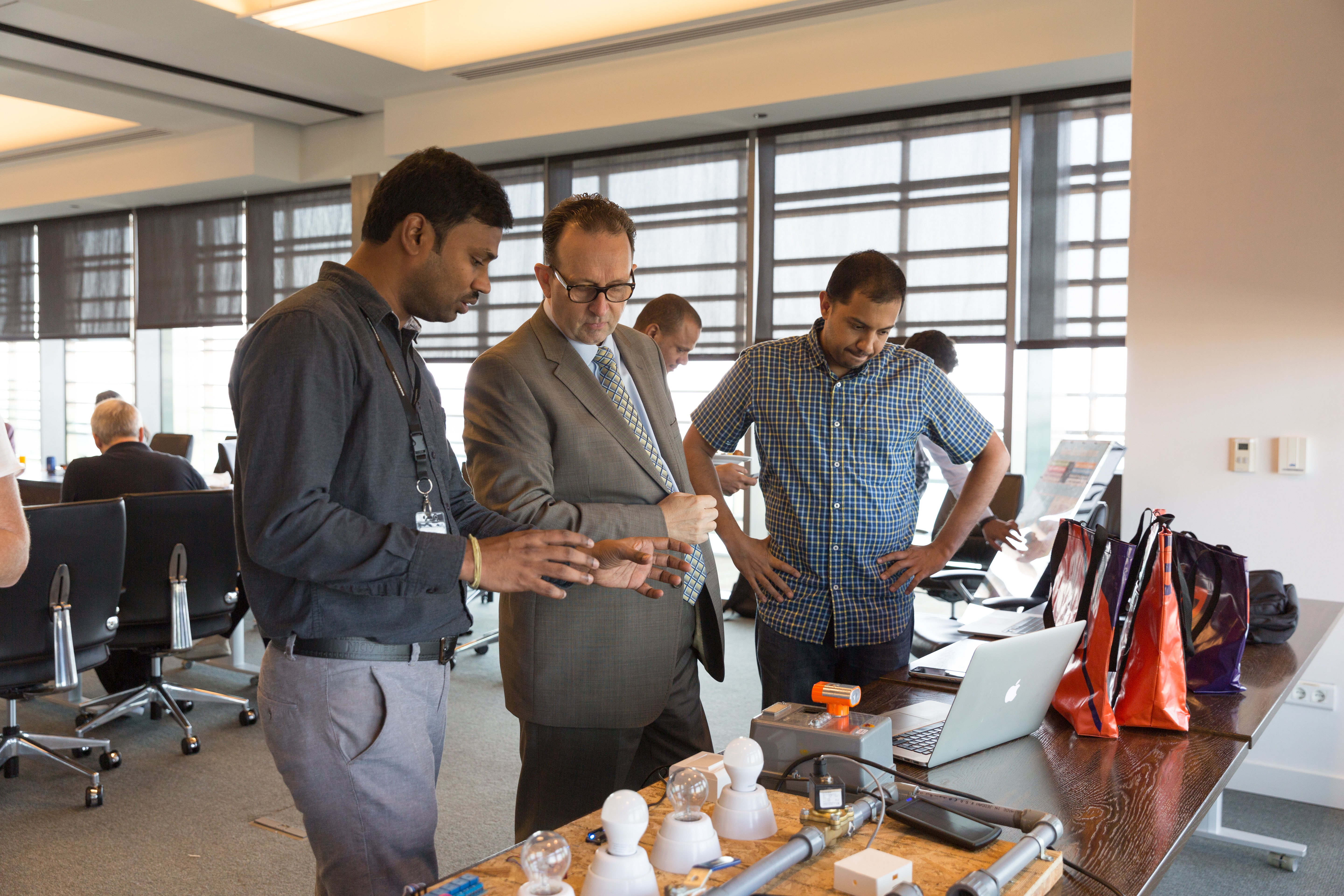Designing for KAUST

KAUST community members work on their "Design for KAUST" projects in the Maker Space self-directed group. Photo courtesy of Maker Space.
- By Annie Parenteau, KAUST News
Have you ever dreamed of 3-D printing a small object, using a laser cutter or programming microcontrollers to create a video game controller? The Maker Space Group Self-Directed Group (SDG) at KAUST has a room full of machines, wires, cutters and circuits—and there, all creative fantasies come to life. Founded in 2016 by Peter Rautek, a research scientist in the University's Visual Computing Center, the Maker Space promotes DIY culture at KAUST and stimulates networking.
"The Maker Space SDG aims to provide its members with education and training as well as expertise and mentorship to help ideas come true using state-of-the-art machines, tools and materials," Rautek said.
The group's engagement goes beyond the space of the room, as they also conduct workshops during the University's Winter Enrichment Program (WEP) and with different KAUST departments. They aim to expand the skill set of the KAUST community and help encourage budding entrepreneurs.
Creating solutions
In March 2017, Maker Space launched the "Design for KAUST" workshop in collaboration with the University's Residential Maintenance Department to look for solutions that use technology (microcontrollers, Internet of Things, sensors, etc.) to improve daily life at KAUST. Solutions helping to save energy for residential and facility buildings were particularly high-priority.
KAUST community members work on their "Design for KAUST" projects in the Maker Space self-directed group. Photo courtesy of Maker Space.
Starting on March 14, many people gathered in the Maker Space to discuss ideas and to begin prototyping. After two weeks of ideation, 16 proposals were submitted and nine teams received funding to start making their prototypes a reality.
Teams came together to build, sketch and put their prototypes to the test in the Maker Space. Activity during the building period was intense, as the winning teams would receive sponsorship, including a total of SAR 10,000 in prizes, a Local Impact Award and an opportunity to test the prototypes in the field—all sponsored by Residential Maintenance Services.
The University's Maker Space self-directed group includes members from across KAUST who have a passion for DIY projects. Photo courtesy of Maker Space.
Making a difference
In October, the committee composed of the Maker Space Core Team and representatives from the Residential Maintenance Department selected three winning teams.
"The standard of the prototypes was outstanding and there were some real opportunities to make a big impact on our community and the lives of our residents," said Patricia Hughes, vice president of Community Life.
The "Smart-Home Dashboard: A Wattmeter IoT Device" came in at first place. The device measures the water and electricity consumption of a household in real time and sends the information over the internet to be visible on a dashboard. Second place went to to the development of a KAUST bus schedule app that allows users to look up bus times, schedules and routing options on the fly from their smartphones. In third place was "Lockit Martin: Bluetooth Enabled Smart Lock," a smart wireless door lock control granting permission to select individuals to access a house without a key. Honorable mentions were given to five other teams for their innovative projects.
The first place winners of the University's self-directed group Maker Space's “Design for KAUST” workshop won for their “Smart-Home Dashboard: A Wattmeter IoT Device." Pictured (from left to right) are Peter Rautek, founding member of the Maker Space group; Raeece Naeem Mohamed Ghazzali; Fouad Gabbani, director of Residential Services; Patricia-Ann Hughes, vice president of Community Life; and Prabhu Murugesan. Photo courtesy of Maker Space.
The Maker Space Group is always welcoming new members of the community and is especially looking for dedicated individuals willing to teach workshops or host weekly focus groups. More info can be found at makerspacesdg.com.

